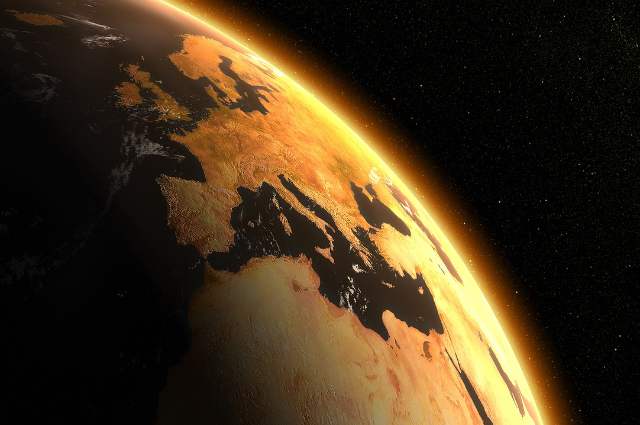
Image by Jürgen Jester from Pixabay
Introduction
Humanity has always faced a myriad of challenges and adversities, but in the 21st century, there is a set of threats that loom larger and more ominously than ever before. These threats pose significant risks to the well-being and even the existence of our species. While we have made remarkable strides in science, technology, and global cooperation, the potential for catastrophe has also grown exponentially. In this article, we will explore some of the most pressing threats to humanity and the urgent need for collective action.
According to Ronald Reagon, "We cannot diminish the value of one category of human life--the unborn--without diminishing the value of all human life."
Climate Change
Climate change, driven by human activities, is perhaps the most immediate and far-reaching threat to humanity. The increasing levels of greenhouse gases in the atmosphere have led to rising global temperatures, extreme weather events, sea-level rise, and disrupted ecosystems. If left unchecked, climate change could render large portions of the planet uninhabitable, leading to food shortages, mass migrations, and conflict over resources.
Nuclear Weapons
The continued existence of nuclear weapons remains a profound threat to humanity. The potential for a catastrophic nuclear conflict, whether by design or accident, is a haunting reality. The destructive power of modern nuclear arsenals is enough to obliterate entire cities, leading to unimaginable loss of life and long-lasting environmental damage.
Biological Threats
Emerging infectious diseases and bioterrorism are growing concerns. The COVID-19 pandemic serves as a stark reminder of how vulnerable we are to novel viruses. The deliberate release of a deadly pathogen could have catastrophic consequences, with potential to destabilize societies and economies.
Artificial Intelligence and Technology
While artificial intelligence and advanced technologies hold the promise of solving many of humanity's problems, they also pose existential risks. Superintelligent AI systems, if not controlled properly, could lead to unintended consequences, including the loss of human control over critical systems.
Environmental Degradation
Beyond climate change, humanity's activities are causing widespread environmental degradation, including deforestation, overfishing, and pollution. This loss of biodiversity and degradation of ecosystems not only threatens countless species but also undermines our own well-being.
Economic Inequality
The growing chasm between the wealthy and the impoverished poses a threat to social stability and global peace. Extreme economic inequality can lead to social unrest, political instability, and conflict.
Political Instability and Conflict
Regional conflicts, terrorism, and geopolitical tensions have the potential to escalate into large-scale warfare. A single conflict could spiral out of control, drawing in multiple nations and triggering a devastating world war.
Resource Depletion
Humanity's voracious consumption of natural resources, such as water, arable land, and minerals, is unsustainable. Resource depletion threatens the availability of essentials for life and the global economy.
Arising Danger without Realisation
The Israel-Palestine conflict is a long-standing and deeply rooted dispute that has had profound implications for the people living in the region and, arguably, for humanity as a whole. This enduring conflict has not only taken a toll on the lives of Israelis and Palestinians but also poses a significant threat to humanity. It continues to have far-reaching consequences, influencing international relations, perpetuating cycles of violence, and challenging the principles of justice and peace.
Conclusion
These threats to humanity are not isolated; they are interconnected and exacerbate one another. Addressing them requires international cooperation, responsible technological development, and a collective commitment to protecting our planet and species. It is imperative that we take swift and meaningful action to mitigate these threats and work toward a more sustainable and secure future. By acknowledging these challenges and acting upon them, we can strive to ensure a safer and more prosperous world for generations to come.
